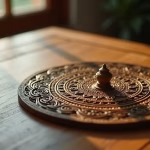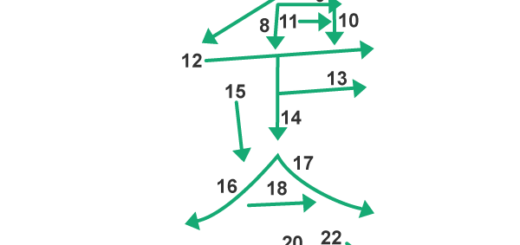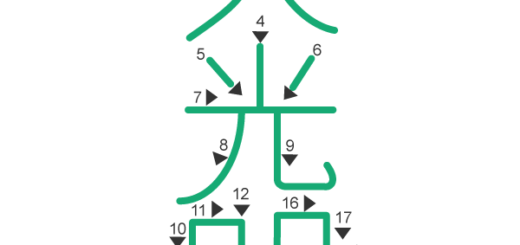How Does Reiki Work?

Reiki is an ancient healing practice that has become increasingly popular worldwide for its ability to promote wellness by harnessing energy.
How Does Reiki Work? Originating from Japan, Reiki is a gentle, non-invasive treatment that many people find beneficial for their physical, emotional, and spiritual health. This blog post will delve into how Reiki operates, what you can expect during a session, and the potential benefits it offers.
What is Reiki?
Reiki is a form of alternative therapy that employs hands-on healing techniques to channel energy and restore balance within the body. The term “Reiki” combines two Japanese words: “Rei,” meaning universal, and “Ki,” referring to life force energy. This energy flows through all living things, and when it is blocked, it can lead to various ailments and discomforts.
Developed by a Japanese Buddhist named Mikao Usui in the early 20th century, Reiki has since spread globally, becoming a part of various healing traditions and practices.
Understanding the Principles of Reiki
Reiki is built on foundational principles that guide practitioners through the healing process.
1. Energy Flow
Reiki is grounded in the concept that everyone possesses a natural life force energy flowing through them. Stress, trauma, or negative experiences can disrupt this energy, leading to physical and emotional issues. Reiki practitioners channel universal energy to restore balance and facilitate healing.
2. The Practitioner’s Role
Practitioners act as intermediaries, helping to facilitate the transfer of energy from the universe to the recipient. They use various hand positions and techniques to clear blockages, allowing energy to flow smoothly. The experience is generally gentle, often involving minimal physical contact, as energy transfers freely between the practitioner and the individual.
3. Self-Healing
Reiki isn’t limited to sessions with a practitioner. Individuals can learn to perform Reiki on themselves as well. Many practitioners report that using Reiki techniques helps them manage stress and enhances their emotional well-being.
How Does a Reiki Session Work?
While Reiki sessions may vary in structure, they generally follow a similar format.
Setting the Environment
A calming atmosphere is essential for a successful Reiki session. Practitioners often create a serene environment, complete with soft music, dim lighting, and comfortable seating, helping to encourage deep relaxation.
The Intake Process
Before starting, practitioners usually engage in an intake process. This conversation covers the recipient’s concerns, emotional state, and specific areas needing attention. This helps tailor the session to best suit individual needs.
The Healing Process
Once the environment is set, recipients typically lie down comfortably. Practitioners then place their hands lightly on or just above the body, facilitating energy flow. During the session, individuals may feel sensations like warmth, tingling, or profound relaxation. Sessions can last from 30 minutes to over an hour based on personal needs.
Potential Benefits of Reiki
Reiki has been reported to offer various benefits, ranging from physical relief to emotional healing.
Stress Relief
One of the standout advantages of Reiki is its effectiveness in promoting relaxation. People often report significant reductions in stress levels following a session. According to a 2021 survey, 78% of participants noted improved relaxation after receiving Reiki.
Pain Management
Reiki may also assist in pain management. Research shows that people with chronic pain conditions, such as arthritis, have experienced a 40% reduction in pain when combining Reiki with their traditional treatments. Recipients often find a considerable improvement in comfort after sessions.
Emotional Healing
Reiki serves as a supportive tool for those facing emotional challenges. Numerous individuals find it helps them process anxiety, depression, and emotional trauma. Reports indicate that 65% of recipients felt an emotional release during their sessions, allowing them to confront and heal from past experiences.
Improved Sleep Quality
For those grappling with insomnia or sleep issues, Reiki may yield significant benefits. Sessions promote relaxation, helping to calm the mind and facilitate restful sleep. Many practitioners suggest that clients who receive Reiki regularly experience up to a 50% improvement in sleep quality.
Enhanced Spiritual Awareness
Beyond physical and emotional healing, Reiki can foster spiritual growth. Many practitioners claim it helps them connect with their inner selves, encouraging self-reflection and personal development.
Is Reiki Right for You?
If you are contemplating incorporating Reiki into your wellness routine, it’s essential to evaluate if it aligns with your personal preferences and needs.
Consult with Professionals
Before trying Reiki, seek guidance from qualified practitioners. It’s wise to inquire about their training and experience. A well-regarded practitioner will gladly share their credentials and approach to ensure a comfortable environment for clients.
Personal Experience
Reiki is generally safe and can benefit individuals even without prior energy healing experience. Many describe their first session as calming and enlightening. Each person’s experience is unique, making it important to approach the practice with an open mind.
How to Incorporate Reiki into Your Life
Considering integrating Reiki into your daily routine? Here are some practical options:
Finding a Practitioner
Search for local Reiki practitioners within your community. Wellness centers, spas, and holistic health clinics often offer Reiki sessions. Referrals from friends or family can also help identify a practitioner who resonates with you.
Learn Reiki Yourself
If a more hands-on approach interests you, consider enrolling in a Reiki class. Many practitioners conduct courses from beginner to advanced levels. Learning Reiki can empower you to practice on yourself and others, increasing your understanding of energy healing.
Online Resources
With the rise of online platforms, many practitioners offer virtual sessions and courses. This can be an accessible way to experience the benefits of Reiki from your home.
Embracing the Journey of Reiki
Reiki provides a holistic approach to healing, highlighting the vital connection between mind, body, and spirit. As more people discover its benefits for stress relief, pain management, emotional healing, and spiritual growth, it becomes clear that Reiki can be a valuable addition to a personal wellness toolkit. Listening to your body and consulting with professionals can guide you on your path toward healing and balance.
- Tips For Your Tantra Practice
- Alchemical Tantra and Spiritual Transformation
- Yantra Tantra and Its Importance
- Mantra Tantra Practices
- Kriya Tantra: Its Mysteries and Practices
























